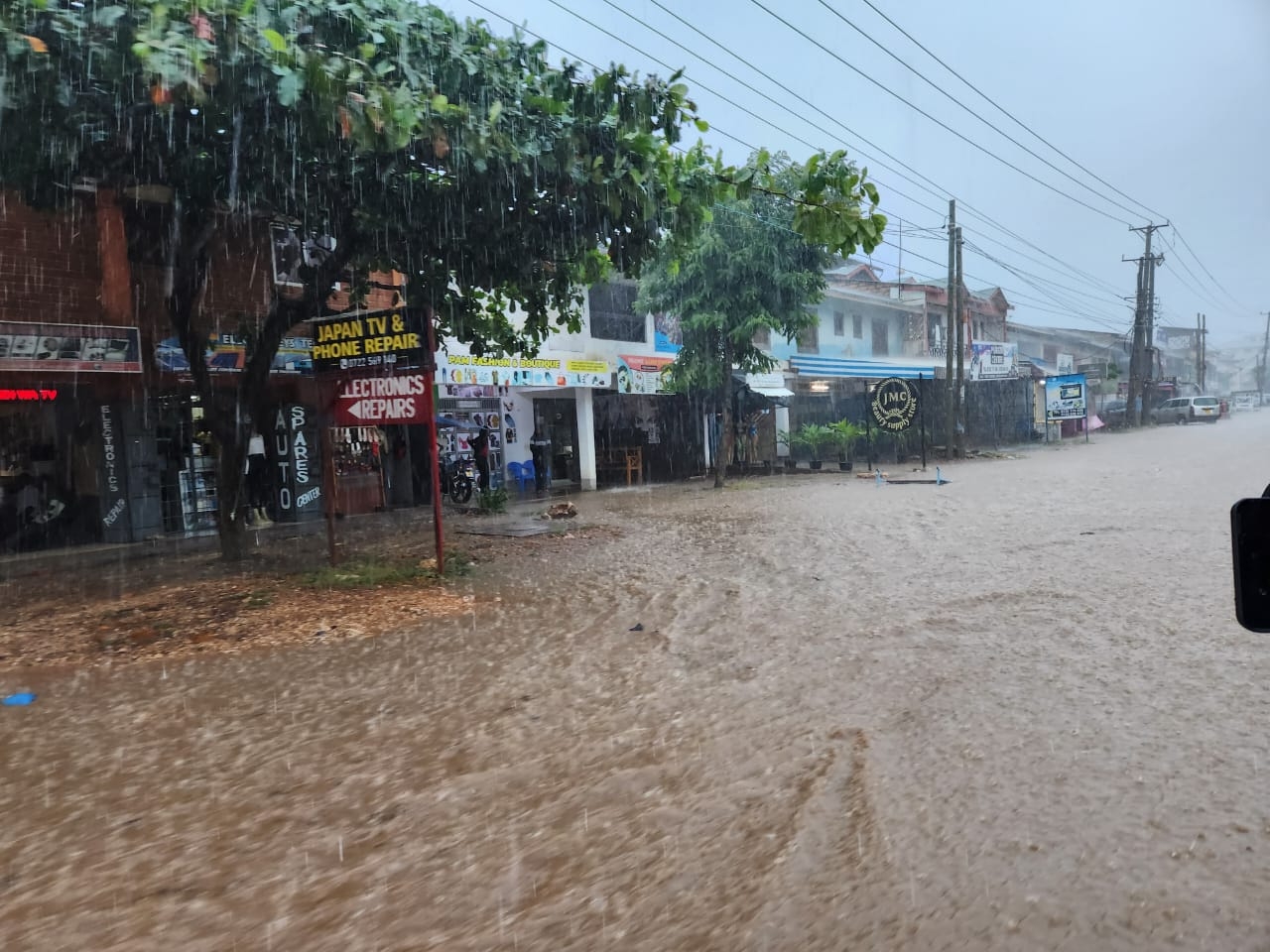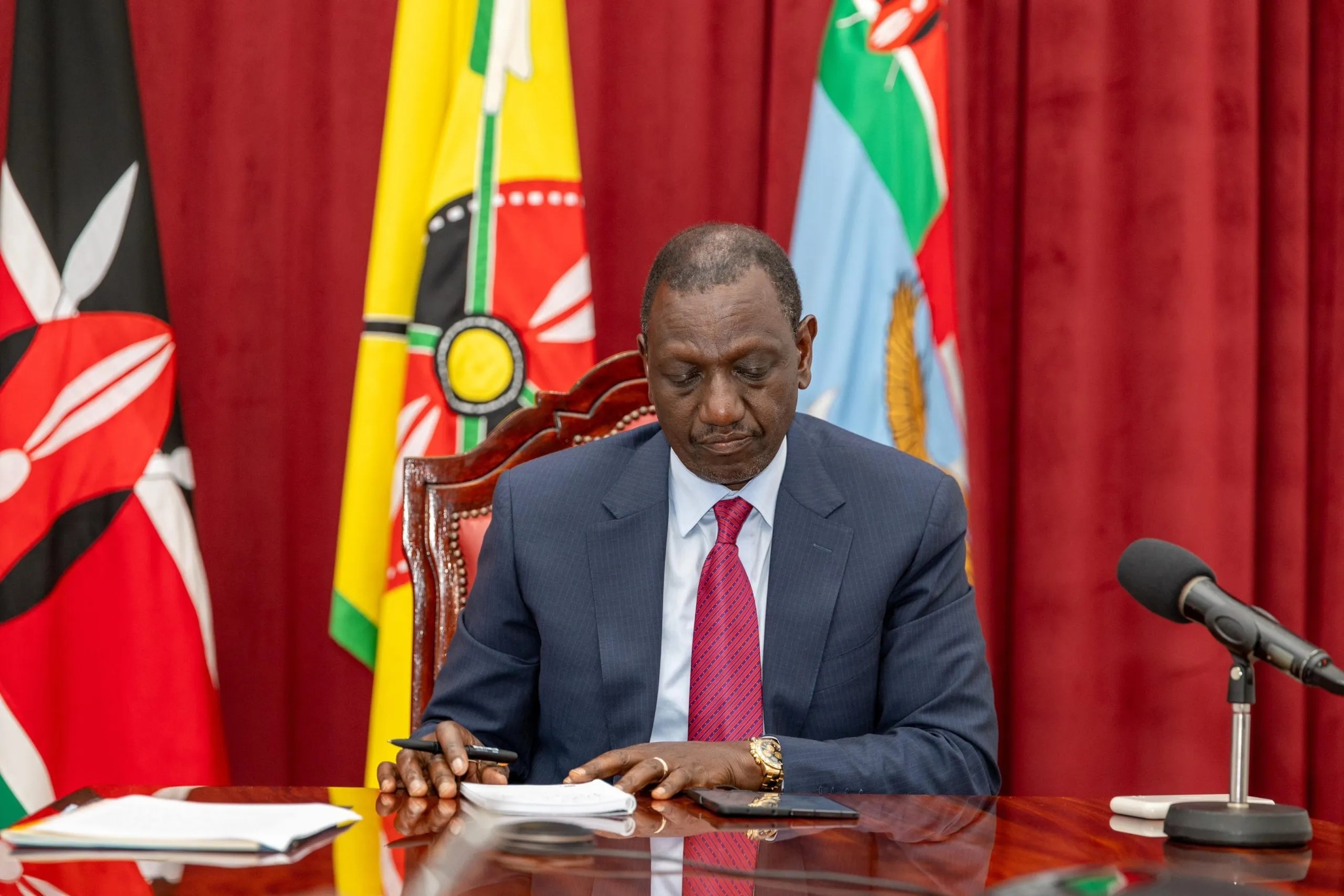Peter Kamunyo, a hotshot of the private insurance sector, is now tasked with transforming NHIF, a 55-year-old health monolith, to deliver the UHC. It's a brutal job, but he has vowed to deliver.
Tell us about yourself?
I'm married with two children. My last one is almost exiting teenage. My firstborn is in her final year in university. My second born is 17 this year.
So what did you do before coming to the NHIF in April last year?
I've been in the healthcare industry for a very long time. About 22 years now. And I can say, I have passed through all the key sectors in healthcare.
I completed my Bachelor of Medicine and Surgery at the University of Nairobi in 1998, then went for a one-year internship at the Kenyatta National Hospital.
Shortly after that, I went on to join Avenue Healthcare as a medical officer. My passion for managing healthcare saw me grow pretty fast at Avenue. By the time I was exiting four years later, I was the general manager for medical services.
And in between that, had also pursued a Master's (from the University of London) and a post-graduate diploma in sexually transmitted illnesses, such as HIV. I also started the first voluntary counselling, testing and treatment centre at Avenue.
Then in 2003, I was approached by Peter Nduati for us to set up Resolution Insurance. I would say that was one of my biggest experiences because if you recall at that point, many medical insurance companies had actually collapsed, and there we were, setting up a brand new institution.
Were you a shareholder?
No, no. He just asked me to join the management. So I joined as a general manager and helped set up all the medical systems, set up all the contracts, appointed all the initial 3,000 providers and then set up the managed care principles that I had learned at Avenue.
And it was actually a success story. We also set up the first HIV insurance cover in Kenya. Another first, we also introduced a cover for maternal and child healthcare within the outpatient and inpatient. So that helped the scheme to also grow and attract young families. And I think the rest is history.
From there I moved to the second-largest insurance broker in the world at that time, AON. I was at AON Kenya for about four years as a general manager of the medical division. There I also had a great experience because you know, in terms of healthcare financing, they have the largest group of members, more than 20,000 lives being taken care of. We were the administrator for the consortium of insurance that proposed to have public servants insured for the first time.
And interestingly that's where the initial partnership with NHIF started because we realised to have a scheme of that size and to be able to manage it properly, partnership with NHIF was inevitable. That was way back in 2010.
In 2012 I moved to GlaxoSmithKline. It was very interesting to make that choice, being a seasoned insurer to move into a pharmaceutical company. But there was a good reason because my passion has always been, how do we offer high quality covers affordably, which is part of managed health care.
Pharmaceuticals actually contribute a significant portion of the costs of management. Actually 40 to 70 per cent cost of our visits is actually pharmaceuticals: a 40 per cent in the case of inpatient and up to 70 per cent for outpatient care.
So when the opportunity came, I went to GSK and understood the costing, how drugs are made available. I was at GSK up to 2016 as the commercial director for Kenya. I was in charge of the vaccines for Africa at that point, in terms of coordination of distribution and sales and also partnerships.
From there I went and joined forces with a group of investors and set up clinics that were dealing with the telemedicine. So still the journey of trying to get access, improved access of quality, affordable care to people who cannot afford.
And then following that, I also joined an organisation, that's immediately before I came here, called MedSource Limited. It was another innovation in aggregating the volumes of small and medium-sized healthcare institutions to be able to access a negotiated medication through an online platform called MedSource. Then also arranging for them credit facilities, because with the fragmentation of healthcare facilities, especially in the private sector, it is difficult for them to access good prices.
I've also been a member and a director at Kenya Healthcare Federation, which is the health wing of the Kenya Private Sector Alliance.
And finally you came to NHIF.
Yes. I saw the advert and said, my history from the time I finished med school to date, it has been leading me to this position of heading the National Health Insurance Fund based on the experience across from insurance.
I suppose here it works quite different from the private sector. How is your experience in the last one year?
The mechanism of operation is very straightforward and it is replicated even in the private sector. However, the biggest difference that I got to experience is the scale of NHIF in terms of the size of the membership, payments of claims and the complexity of the organisation. Right now, we've total membership of slightly about 10 million.
If you multiply that by the number of lives in a household, we are looking at close to 44 per cent of the country's population being covered by NHIF. That was a big learning for me.
What about the active membership?
All the members actually who have ever joined are about 10 million. But the active ones at this point in time are about half of that.
What improvements have you made or planning to?
I have five guiding principles that have been driving the whole time. Number one is to listen. What I already knew and what I found were very different. So the first thing was to listen, to listen to our customers, to the stakeholders, and also listen to the staff.
The second one is people. This I broke down to two: The people internally as staff, and my fellow Kenyan – the people outside. They are the key stakeholders.
We want to all work as a team to ensure their welfare is taken care of because, you understand, anybody who comes in contact with NHIF’s benefit is in pain, is at a position of loss.
So health is an emotive issue. So we need to handle them with speed, efficiency, and empathy.
Then the third principle I had is restoring trust because this is an institution of trust. You pay us Sh6,000 a year (or Sh17 a day), and we promise you that should you get sick, you'll get this myriad of benefits.
This applies to service providers, too?
Yes, we also tell the health care providers that when this active member of ours comes, you're bound to give them these services and we shall pay you. And then also internally for people working here to know they should do a good job, and it will get reimbursed well. I'm also restoring trust to the ministry, to the government and to other stakeholders that we are an institution of repute. A lot of that can be achieved just by transparency and accountability.
The fourth principle is to save money. We are 55 years old. We have grown from collecting as little as Sh30 and now to Sh500 monthly or Sh1,700 for the higher-end employed folk.
So we collect over Sh60 billion shillings annually. The last financial year it was close to Sh64 billion. And 90 per cent of that goes out to pay providers for benefits that members access.
A study by Juran Institute in 2002 said globally about 20 to 30 per cent of what is paid out is actually waste. We have seen the same in our analysis, and we've caught quite a bit of medical fraud. If we save that money, we can cover more people, increase services and benefits. Actually in the last couple of months, we have caught and suspended a number of healthcare facilities and nabbed individuals who were getting services not due to them.
This exercise will continue because we want people to get paid for what services they've provided and to get benefits that are valid for them.
The fifth and final principle is adding value. Like we said, health is an emotive subject. So if you call to query, the response should be prompt, and empathetic. May last year the number of calls that go through at our call centre, were about 200 day. Currently, we are at 3,000 plus per day.
We’ve also increased other models of communicating: the SMS, through email, Twitter and also the Facebook account, which is very active. These are ways we have enhanced to add value to our members within the last one year. The other thing we’ve done in terms of adding value is ensuring prompt payments of our providers.
There had been a lot of backlog. Right now, for the clean claims, we are actually doing about 27 days turnaround of payment to the providers. So it's adding value.
Also we're looking to ensure delays in pre-authorisation is no longer an issue.
How long does pre-authorisation take?
According to our performance indicator, it should be within hours, within the same day. For emergencies, it’s like almost immediate. Some cold cases can take a day or two days, so still you might find delays, but we are ensuring the system becomes even more efficient.
We actually attend to close to one million patients right now per month. We're talking about close to 200,000 inpatients per month, and another maybe 600,000 to 700,000 outpatients per month. So this is voluminous. And to be able to have efficiency and accuracy, automation is key.
For contracting of service providers we're even going to granular level — details of the number of beds, you know, the type of facilities that are available there. So that once it is in the system, as we do the authorisation, you cannot claim outside those parameters.
And that has been a challenge in the past. When we look at medical form, you find that an institution has 30 beds, but you find claims coming of their 58 patients admitted in a day. So where are the other extra coming from?
But how is the retention of members nowadays?
By retention, we were talking about somebody who has been a member and is continuing to be active. Retention in the formal sector is a lot higher because it is statutory.
But it is a problem in the informal sector. The voluntary members who pay Sh500 every month. At end of last quarter (January-March 2021), only 26 per cent were active. At the end of December 2020 it was actually lower at 19 per cent.
How will that affect the Universal Health Coverage?
If people pay just at a time of need and then get out, it is not sustainable. It’s like buying money. You know, I pay Sh6,000 because I know I'm going to get my hip joint replaced at Sh300,000, after that I take off. So you bought Sh300,000 using Sh6,000.
In February, Treasury proposed to make it mandatory for all Kenyans to pay NHIF contributions. Do you support this?
For social health insurance, that is a very good proposal. The way we envisioned Universal Health Coverage is very simple. Those who can pay should pay. And those who cannot pay to be identified and supported.
The government has already committed to supporting one million indigent families. We estimate that about 5.1 million Kenyans are vulnerable or indigent. So the one million is 20 per cent of that. We have already verified their data and have registered over 86 per cent of them.
We have about 874,000 households already registered and now as soon as the funds are released, they will be able to access services.
When you have a voluntary group that contributes in time of need and then takes off, it leads to very high loss ratios.
Currently for the voluntary group, the loss is almost 270 per cent. This means we have gone out of pocket twice to support that group.
But when all of them pay, that is sustainable. And that is why even in UHC right now, we're going for what we call output financing, whereby everybody pays a premium.
It is a very small premium. It is just Sh17 per family per day, and with that, the principal member is covered, their spouse and their children. So those who can pay should pay, and those who cannot pay to be identified and supported.
Some counties have started already this, like Kisumu has already paid for the first 45,000 families. And they're supporting up to 90,000 indigents.
If you look at the Kenya demographic and health survey, you'll see that in Kisumu, the number of indigents is 121,000. So it means that they are almost at UHC level because you just need to have 80 per cent of the population covered.
Lamu is sponsoring over 20,000 indigents. We’re working together with the counties to at least support 20 per cent of the indigents there.
Why is NHIF requiring those with chronic illnesses to pay premiums upfront for up to two years before accessing services?
Actually, that was misreported.
Insurance premiums in Kenya are actually paid annually in advance. For us it’s supposed to be Sh6,000 payable annually in advance. But because we are social insurer, we have made it easier. So it is Sh500 per month.
But the default is high. I'm telling you, 75 per cent of the voluntary members are in default right now, as we speak, meaning that they were members at some point, enjoyed the service and stopped paying.
The requirement for a one-year advance payment is only for those with a history of defaulting.
How many service providers do you now have?
The total number is 8,189. But right now, we’re in the process of contracting another close to 300, so we're going to get too close to 8,500 by, by end of this financial year. And the majority of them, close to 70 per cent, are public health facilities. Twenty-five per cent or thereabouts are private and the rest, faith-based organisations.
What’s your target in terms of expansion?
In our strategic plan 2018-22 by next year, by 2022, that we should hit 20 million members.
The progress has been ongoing. With the UHC, if all who can pay will be obligated to pay, we will definitely get to those numbers.
We are also getting there through our partnerships. Also like this morning, I've just met with the Boda Boda Association of Kenya, who have 1.4 million members, and we're working to see how they can be brought on board.
We are also meeting with Matatu Owners Association and, you know, also our interactions with the counties to bring on board other groups.
You mentioned medical fraud. What have you done to bring down those cases?
The issue of medical fraud is not peculiar to NHIF or to Kenya. It's a global thing. And a medical fraud occurs in many forms.
One of the common forms we’re experiencing now is impersonation – illegal sharing of cards. It is so rampant that I can tell you in the last three months, somebody had been admitted on somebody else's card but then unfortunately died. And this skews utilisation.
So we have introduced biometric registration. This will be able to identify a client clearly.
In addition, hospitals will now be submitting their claims electronically.
This will reduce fake claims for services that were not rendered. We also have the quality assurance team that actually goes around to ensure that what facilities have declared as provided services are actually present.
We've been able to catch quite a number of fraudulent hospitals. In this last quarter, we've actually suspended nine hospitals.
You head an institution with many predatory clients and competing interests. Your three immediate predecessors were hounded out of office. Do you sometimes fear this?
I'll tell you this, I just focus on the good. What is the goal at the end of the day? To put a smile on the patient's face. What does it take to do that? It's about doing things right. Provide the services that they need, the payment that they need to make that possible, and ensure all that is done properly.
Number two, and this is what we've been doing: Transparency and accountability. What we do, we are putting it out there. For the first time, we also had a town hall with all staff from across the country, all the 1,900 staff, and we communicated the vision.
Edited by T Jalio



















